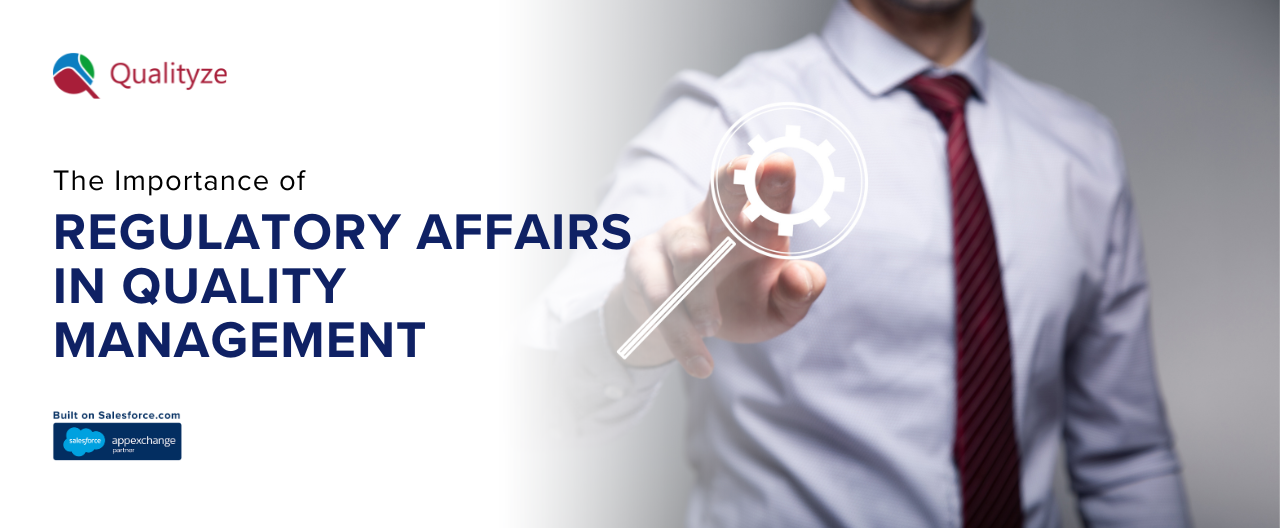

Calculate your potential savings with our ROI Calculator
ROI Calculator
Imagine you order a product online, and it turns out to be faulty. Could a single defective product affect your trust in a brand? The answer is an emphatic yes! Many consumers lose faith in companies delivering substandard goods. Product quality has a direct impact on a company’s reputation and bottom line. Meeting customer expectations is one of the main objectives of a company, and that’s why they constantly strive to ensure their products meet high standards. Following regulatory requirements and customer expectations are a few ways to deliver high-quality products consistently, earning a unique brand value.
Regulatory affairs play a crucial role in achieving product excellence. Regulatory bodies establish standards, and companies must adhere to these guidelines. They bridge the gap between product development and market approval, ensuring product safety, efficacy, and compliance with relevant regulations. Ignoring regulations can result in severe penalties, product recalls, and irreparable damage to a brand's reputation.
This blog explores the connection between regulatory affairs and quality management. We examine their meanings, highlight their distinct yet interconnected roles, and explore why regulatory compliance is non-negotiable for ensuring product quality. We also discuss common challenges and best practices for integrating regulatory affairs seamlessly into quality management systems, showcasing real-world examples that underscore their significance.
Quality means a product or service consistently meets customer expectations and established standards. It encompasses a product’s features, performance, reliability, and safety. A quality product performs its intended function effectively and without defects. Businesses prioritize quality to build trust and maintain a competitive edge.
Quality management involves implementing systems and processes to ensure consistent product quality and reliability. It covers everything from design and manufacturing to testing and customer feedback. Regulatory affairs, on the other hand, focus on providing a company’s products comply with all applicable laws, regulations, and guidelines. These regulations often come from government agencies and industry-specific bodies. Regulatory affairs professionals interpret complex legal documents and translate them into actionable internal policies and procedures.
In short, quality emphasizes internal standards and customer satisfaction, whereas regulatory affairs focus on external legal and governmental requirements. Both disciplines are essential for bringing safe and effective products to market. The table below highlights the main features of quality and regulatory affairs:
| Feature | Quality | Regulatory Affairs |
| Primary Focus | Meeting customer expectations and internal standards | Adhering to external laws, regulations, and guidelines |
| Scope | Internal processes, product design, manufacturing, testing | External compliance, documentation submission, regulatory approvals |
| Objective | Ensuring product excellence and customer satisfaction | Achieving legal compliance and market access |
| Driving Force | Customer needs, business reputation, continuous improvement | Government mandates, industry standards, legal obligations |
| Output | Reliable products, efficient processes, satisfied customers | Approved products, valid licenses, compliant operations |
| Key Activities | Quality control, quality assurance, process improvement, audits | Regulatory intelligence, dossier preparation, agency liaison |
| Perspective | Internal, process-oriented | External, legal-oriented |
| Responsibility | All employees, led by quality management team | Dedicated regulatory affairs team |
| Outcome of Failure | Customer dissatisfaction, reputational damage, financial losses | Fines, legal action, product recalls, market exclusion |
Regulatory affairs are distinct from quality. Still, they collaborate to ensure successful product launches and maintain a sustained market presence.
Regulatory affairs play a pivotal role in establishing and maintaining robust quality management systems. They provide the necessary framework for quality operations. Without regulatory guidance, quality efforts might lack specific direction or legal grounding. Here are the roles of regulatory affairs in quality management:
Regulatory affairs actively guide quality management, ensuring products are not just good but also legally sound and safe for consumers.
Regulatory affairs are not merely an administrative burden. They form an indispensable pillar of effective quality management. Their importance stems from several critical factors that directly influence a company’s ability to operate, innovate, and thrive.
Regulatory affairs are crucial for quality management because of the following reasons:
Regulatory affairs are not simply about checking boxes. They fundamentally protect consumers, ensure market viability, and uphold a company’s reputation.
Integrating regulatory affairs effectively into quality management presents several challenges. Organizations must navigate these obstacles to ensure compliance and maintain high-quality standards.
Let us discuss a few of the most significant regulatory affairs challenges in quality management:
| Challenge | Description | Impact on Quality Management |
| Global Harmonization Efforts | Different countries have varying regulatory requirements, making global product launches complex. | Increased complexity in quality system design; need for regional variations in documentation. |
| Digital Transformation and Cybersecurity | New regulations emerge regarding data privacy and cybersecurity for connected devices and health data. | Requires integration of cybersecurity measures into product design and quality processes. |
| Supply Chain Compliance | Ensuring all suppliers and partners adhere to regulatory standards adds another layer of complexity. | Demands rigorous supplier qualification and ongoing monitoring within quality systems. |
| Post-Market Surveillance | Regulations increasingly emphasize continuous monitoring of products after market release. | Necessitates robust complaint handling, adverse event reporting, and trend analysis within quality. |
| Maintaining Competence and Training | Regulatory affairs and quality professionals require continuous training to stay current with evolving laws. | Significant investment in training programs to maintain expertise and avoid compliance gaps. |
Addressing these challenges requires a strategic approach, significant investment, and a strong commitment from leadership.
Achieving seamless integration between regulatory affairs and quality management requires adopting specific best practices. These practices promote efficiency, compliance, and product excellence. Some of the best practices for practical regulatory affairs in quality management are:
These practices foster a culture of quality and compliance throughout the organization.
Numerous industries showcase the direct impact of regulatory affairs on quality management. Understanding these examples underscores the crucial connection between compliance and product excellence.
(1) Pharmaceutical Industry
(2) Medical Device Sector
(3) Food and Beverage Industry
(4) Automotive Industry
(5) Cosmetics Industry
These examples illustrate how regulatory affairs act as the gatekeeper, ensuring that quality efforts translate into compliant, safe, and marketable products across diverse sectors.
The balancing act between regulatory affairs and quality management is crucial to a company’s success in regulated industries. No organization can truly claim excellence without a deep commitment to both. Regulatory affairs professionals do more than merely interpret laws; they act as architects of compliance, laying the foundation for robust quality systems. They ensure products are not only practical and reliable but also legally sound and safe for public consumption.
Their constant vigilance against evolving regulations, coupled with their expertise in navigating complex approval processes, safeguards a company’s reputation, market access, and financial stability.
Neglecting this vital partnership risks severe penalties, product recalls, and irreparable damage to consumer trust. By integrating regulatory foresight into every facet of quality management, companies foster a culture of integrity and precision. This symbiotic relationship ensures consumer safety, builds enduring brand loyalty, and ultimately drives sustainable business growth.
Author

Qualityze Editorial is the unified voice of Qualityze, sharing expert insights on quality excellence, regulatory compliance, and enterprise digitalization. Backed by deep industry expertise, our content empowers life sciences and regulated organizations to navigate complex regulations, optimize quality systems, and achieve operational excellence.